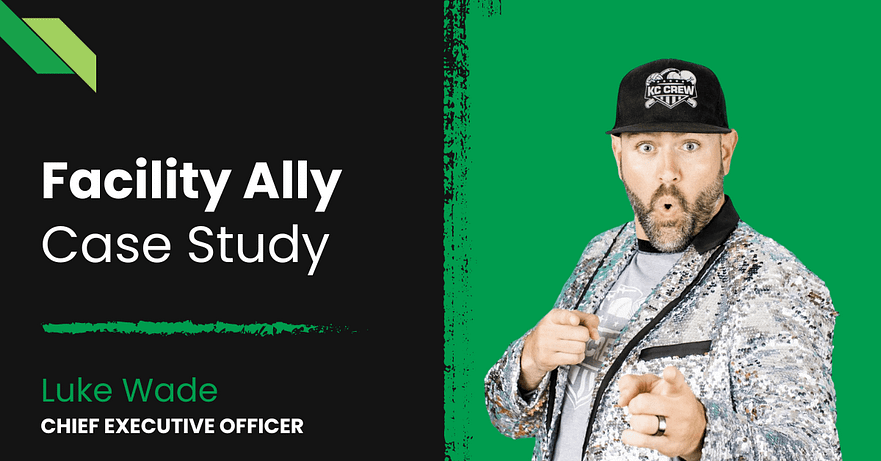Web Developer Interview Questions That Actually Matter (Beyond the Coding Tests)
Your web developer interview process is testing the wrong skills.
While you’re asking candidates to whiteboard algorithms, your competitor just hired someone who can actually ship features users want.
The difference? They’re asking better questions.
When Perfect Code Creates Terrible Websites
Three months ago, I made a hiring mistake that almost cost us a major client.
We needed a web developer fast. Our main product dashboard was built on legacy code, and we had committed to a complete redesign in 90 days. The pressure was intense.
Our hiring process looked solid on paper. We had candidates solve complex coding challenges, implement sorting algorithms, and explain JavaScript event loops in detail. The developer we hired scored 95% on all technical assessments.
- Week one: Perfect. Clean code, follows best practices, asks good questions.
- Week four: Still good. Features are well-architected and thoroughly tested.
- Week eight: Problem. The redesigned dashboard looks amazing, but it loads in 6 seconds on anything slower than fiber internet.
- Week twelve: Disaster. Client demo fails. The beautiful interface freezes completely when more than 10 users access it simultaneously. We lose the contract renewal.
Our ‘perfect’ developer could solve any algorithm puzzle but had never built anything that real people actually use under real conditions.
The Web Development Hiring Trap
Here’s what’s broken about most web developer interviews.
We treat web development like it’s computer science. It’s not.
Computer science is about optimal algorithms and theoretical efficiency. Web development is about creating experiences that humans can actually use.
What traditional interviews test:
- Can you implement quicksort in JavaScript?
- Do you know the difference between let and const?
- Can you explain closures and hoisting?
- Do you understand async/await syntax?
What matters for actual web development:
- Can you figure out why users abandon the checkout process?
- Do you know how to make a website work on a 3-year-old phone?
- Can you debug issues that only happen in production?
- Do you understand how to build interfaces people actually want to use?
The skills that make someone good at coding interviews are completely different from the skills that make someone good at web development.
The Real Cost of Wrong Interview Questions
Time and money wasted:
- 60+ hours per hire on technical assessments that predict nothing
- $25,000+ in recruiting costs for roles that don’t work out
- 8-12 weeks from job posting to productive developer
- Another 6-8 weeks discovering they can’t handle real projects
Opportunity cost:
- Competitors ship features while you’re still hiring
- User experience suffers with developers who don’t think about users
- Technical debt accumulates from developers who optimize for code elegance over business results
Team morale damage:
- Existing developers burn out covering for positions that stay unfilled
- Product managers lose confidence in engineering timelines
- Customer support gets overwhelmed with issues that could have been prevented
The brutal truth: Traditional web developer interviews have about a 50% success rate. You’re essentially flipping a coin and hoping for the best.
What Web Development Actually Requires
Forget everything you think you know about technical interviews. Here’s what successful web developers actually do all day:
- They solve user problems, not algorithm puzzles. When users can’t complete a task on your website, the solution isn’t usually a more efficient sorting function. It’s understanding why the interface confuses people.
- They debug issues across browsers, devices, and network conditions. Real users don’t all have the latest Chrome on high-end laptops with perfect internet. Great web developers build for the messy reality of the actual web.
- They balance competing requirements under time pressure. Marketing wants the page to load instantly. Design wants beautiful animations. The backend team has API limitations. Web developers navigate these constraints to ship something that actually works.
- They think about the entire user journey, not just individual features. Academic exercises focus on isolated problems. Web development is about how everything fits together to create coherent experiences.
15 Web Developer Interview Questions That Predict Success
User Experience and Problem Solving
1. Our website’s conversion rate dropped 30% after a redesign, but user feedback is positive and the new design tested well. How do you investigate what’s actually happening?
What to look for: Analytics thinking, A/B testing knowledge, understanding that user behavior differs from user opinions, systematic investigation approach.
2. Users complain that our web app ‘feels slow’ but all your performance metrics look normal. Walk me through identifying and fixing the real problem.
What to look for: Understanding of perceived vs. measured performance, knowledge of user experience metrics, ability to think beyond technical measurements.
3. You need to build a feature that works for both power users who want advanced controls and beginners who get overwhelmed easily. Describe your approach.
What to look for: Progressive disclosure thinking, user research awareness, interface design consideration, empathy for different user types.
Cross-Browser and Device Reality
4. A client reports that a critical form doesn’t work on their iPad, but it works fine on your desktop. Your QA team can’t reproduce the issue. How do you debug this?
What to look for: Device testing strategies, understanding of touch vs. mouse interactions, systematic remote debugging, browser difference awareness.
5. Your web app looks perfect in Chrome but breaks completely in Internet Explorer 11. Unfortunately, 40% of your users still use IE. What’s your strategy?
What to look for: Progressive enhancement knowledge, polyfill strategies, graceful degradation, business impact awareness.
6. Explain how you’d optimize a web application for users in areas with slow internet connections without making it feel ‘dumbed down.’
What to look for: Performance optimization, progressive loading, offline capabilities, inclusive design thinking.
Real-World Performance Challenges
7. Your marketing team wants to add 15 different tracking scripts to the website. How do you handle this without destroying performance?
What to look for: Script loading strategies, performance budgeting, stakeholder communication, practical compromise solutions.
8. A feature that worked fine with 100 users becomes unusable with 1000 users. The backend APIs are fast. What could be causing this and how do you fix it?
What to look for: Client-side performance bottlenecks, DOM manipulation efficiency, memory management, and state management scalability.
9. Users report that your website works great for the first few minutes, then becomes sluggish and unresponsive. Describe your investigation process.
What to look for: Memory leak debugging, event listener management, garbage collection understanding, and long-running application optimization.
Integration and Production Challenges
10. You need to integrate a third-party payment system that has unreliable uptime and poor documentation. How do you build this feature reliably?
What to look for: Error handling strategies, fallback planning, user communication during failures, and integration testing approaches.
11. Your web application needs to work both as a standalone website and embedded in other companies’ sites via iframe. What challenges do you anticipate, and how do you solve them?
What to look for: Same-origin policy knowledge, styling isolation, communication between frames, and security considerations.
12. Describe how you’d implement a feature that requires real-time updates for thousands of simultaneous users without overloading the server.
What to look for: WebSocket knowledge, connection management, scaling strategies, and fallback approaches for unreliable connections.
Maintenance and Team Collaboration
13. You inherit a web application with no documentation, inconsistent coding styles, and a 40% test failure rate. How do you approach improving this systematically?
What to look for: Legacy code management, incremental improvement strategies, risk assessment, and team coordination.
14. A designer gives you a mockup that looks beautiful but would require significant performance compromises to implement exactly. How do you handle this?
What to look for: Cross-team communication, alternative solution thinking, performance advocacy, and collaborative problem-solving.
15. Your web application works perfectly in your development environment but has random issues in production that you can’t reproduce locally. What’s your debugging strategy?
What to look for: Production debugging tools, environment difference awareness, logging strategies, systematic issue isolation.
How to Evaluate Web Developer Responses
Strong answers demonstrate:
- Systems thinking: They consider how their solution affects the entire user experience
- User empathy: They think about real people using real devices under real conditions
- Practical trade-offs: They understand business constraints and time limitations
- Tool knowledge: They mention specific debugging tools, testing approaches, or optimization techniques
- Communication skills: They can explain technical concepts in business terms
Warning signs include:
- Only technical solutions: They don’t consider user impact or business requirements
- Perfect world assumptions: They assume ideal conditions that don’t exist in production
- Generic answers: They give textbook responses without demonstrating real experience
- No tool mentions: They can’t name specific debugging or testing tools they’ve used
- Blame-first thinking: They assume problems are always someone else’s fault
Questions That Waste Everyone’s Time
Stop asking these traditional interview questions that don’t predict web development success:
- “Implement a binary search tree in JavaScript”
- “Explain prototypal inheritance”
- “What’s the difference between == and ===?”
- “Code a function to reverse a string”
- “Explain how the JavaScript event loop works”
These test computer science knowledge, not web development ability.
Sample Response Analysis
Question: Users report slow loading times, but your performance tools show good metrics.
- Strong response: “I’d start by looking at real user monitoring data, not just synthetic tests. Tools like WebPageTest can show how the site performs on different devices and connection speeds. I’d check for issues that don’t show up in dev tools—like web font loading blocking, third-party script delays, or images that look fine on fast connections but timeout on slow ones. I’d also look at user analytics to see if specific user segments or geographic regions are affected more than others.”
- Weak response: “I’d run Lighthouse and optimize whatever it flags. Maybe compress images and minify CSS files.”
The strong answer shows understanding that real users have different experiences than developers, demonstrates knowledge of appropriate tools, and considers various potential causes.
Building Questions Around Your Actual Challenges
Create interview scenarios based on your real website.
For e-commerce sites:
- How would you reduce cart abandonment during checkout?
- Design a product search that works well on mobile devices.
For content websites:
- Optimize article loading for users who browse dozens of pages per session.
- Handle high traffic spikes during breaking news events.
For web applications:
- Design a dashboard that remains usable with slow database responses.
- Implement features that work reliably across different corporate firewalls.
The Web Developer Interview Revolution
Here’s what happens when you fix your interview process:
- You hire developers who care about users, not just elegant code
- You find people who can debug real-world issues, not just pass algorithm tests
- You get developers who understand performance in context, not just theoretical optimization
- You build teams that ship features users actually want, not just technically impressive solutions
Why Most Companies Get Web Developer Hiring Wrong
The problem isn’t that companies want to hire good developers. The problem is that they’re using interview questions designed for different jobs.
Algorithm questions work great for hiring computer scientists. Framework trivia works for hiring people to maintain existing codebases.
But web development is about solving human problems using web technologies. The interview should test for that.
A Simpler Solution Than Fixing Your Interview Process
Look, I get it. Redesigning your entire web developer interview process is a project in itself. You’ve got products to ship and teams to manage.
What if there was a way to skip the interview optimization project entirely?
Traditional web developer hiring:
- 10-12 weeks from job posting to productive contributor
- $30,000+ in recruiting and interview infrastructure
- 50% chance the hire struggles with real-world challenges
- Weeks discovering whether they can actually build what users need
- Risk of hiring someone who writes beautiful code that creates terrible user experiences
Full Scale’s web development staff augmentation:
- 2 weeks from decision to experienced web developers working on your projects
- Developers already proven on real websites with real users
- 95%+ retention rate because they solve actual problems
- No interview process overhead or hiring uncertainty
- Direct integration into your development workflow
We’ve solved the hard problem: finding web developers who build websites that users love, not just code that impresses other developers.
Our web developers have optimized conversion rates for e-commerce sites. They’ve debugged cross-browser issues across dozens of device combinations. They’ve built responsive interfaces that work on everything from budget Android phones to 4K monitors. They’ve done this successfully for companies facing challenges just like yours.
Get developers who’ve already proven they can build web experiences that work in the real world.
No more algorithm puzzles. No more hoping interview performance translates to user-focused development. Just experienced web developers ready to build websites that users actually want to use.



